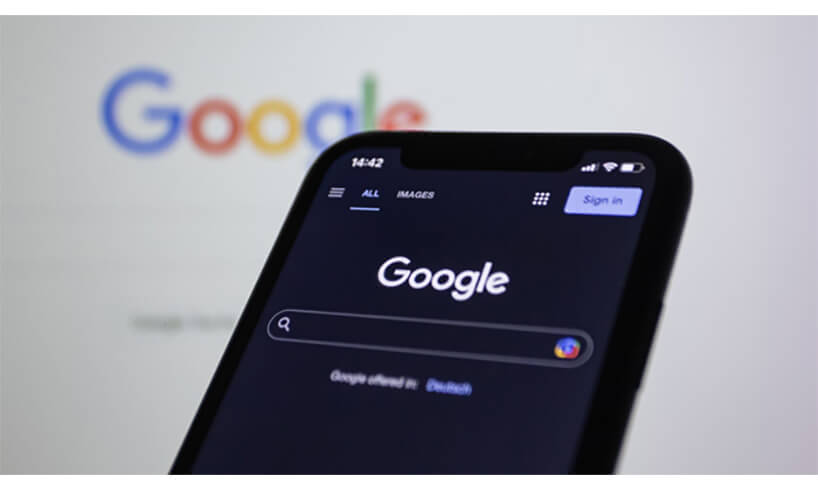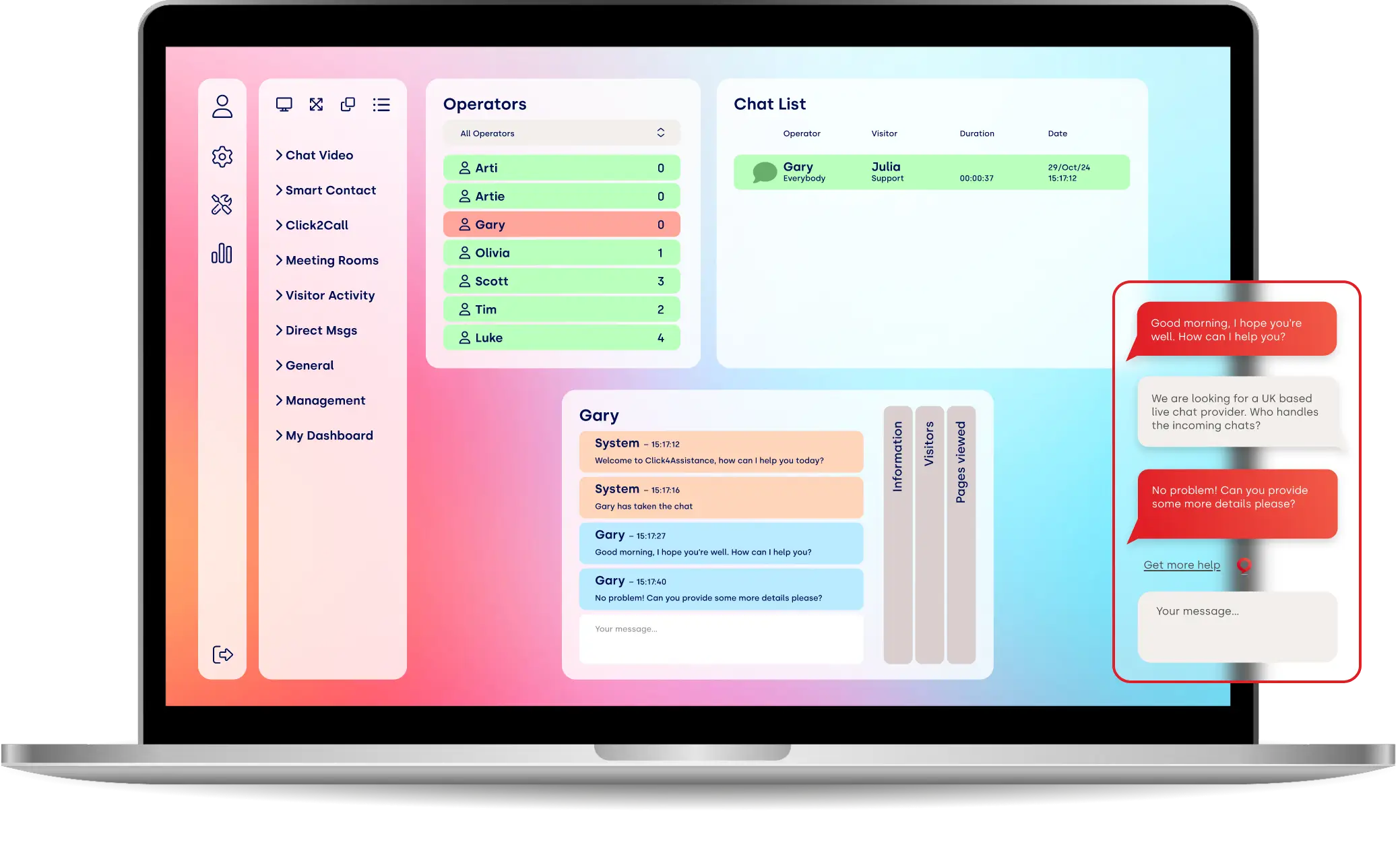Will ChatGPT Become the New Google?

Google currently holds 90% of global search markets, but we discuss whether ChatGPT and conversational AI could be about to change that.
Since its release in November 2022, ChatGPT has taken the internet by storm. This conversational chatbot, released by artificial intelligence (AI) research company, OpenAI, is revolutionising what we can do online. It has earned itself over 100 million active users thanks to capabilities that include article writing, text summaries, and a whole lot more.
As ChatGPT’s popularity increases, questions are also being asked about whether conversational AI could soon change the face of search and information retrieval which, until now, has been largely Google’s domain.
As it stands, changes of this nature have been minimal, and Google still holds over 90% of the global search market. In this article, we’ll consider whether that could change as ChatGPT and other AI models continue to disrupt search landscapes.
What Does ChatGPT Offer?
ChatGPT has become the face of conversational AI, a technology that’s ultimately intended to simplify interactive information retrieval on every level. Considering this definition, it’s hardly surprising that ChatGPT is being pitted against search engine giants like Google. On the surface, it seems like the two are doing roughly the same thing.
In truth, though, ChatGPT is by no means another search engine. Instead, this conversational AI model utilises vast amounts of data to closely mimic human conversation and interactions. It achieves this goal in a variety of different ways, which include –
- Natural language processing: ChatGPT understands and processes natural language queries which can be posed in a conversational tone without keywords.
- Personalization: ChatGPT understands user preferences and considers previous interactions to tailor its responses.
- Contextual awareness: ChatGPT models retain context over multiple interactions, making coherent, extended conversations possible.
These capabilities mean that, far from simply pulling up information, ChatGPT is poised to apply that information in real-world settings, which could include brainstorming, data analysis, article summaries, and more.

How Search Engines Operate
ChatGPTs unique capabilities provide users with undeniable benefits, but that doesn’t negate the fact that traditional search engines like Google have honed their abilities for the past twenty years. The fact that Google retains a landslide amount of the global search market despite ChatGPT’s rise certainly suggests that search engines are doing something right.
To understand what that is, it’s important to consider how search engines like Google operate. Web index-based search models crawl vast amounts of information based on one-off keyword searches submitted by internet users. The three main phases of this process are –
- Exploration and indexing: Search engines search the web and index content for rapid information retrieval during searches.
- Ranking algorithms: Search engines rank results based on algorithms which consider factors such as page relevance, popularity, and authority.
- Search results: Search engines reveal results via a list of web links and short page extracts known as ‘snippets’.
Will ChatGPT Become the New Google?
While ChatGPT might have many search selling points, it is not a search engine. Still, when you look at the two technologies side by side, their endpoints look so similar that it’s natural to question whether ChatGPT could take the helm in search stakes.
In truth, though, the answer is far from simple. While their endpoints look undeniably similar, ChatGPT and Google still offer two very different things. That’s not to say ChatGPT and other conversational AI models won’t impact the future of user expectations regarding searchability, but ChatGPT will never function in the way Google does. Nor is it trying to.
In fact, when you step away from their similarities, it’s obvious that search and AI models have just as many differences. These are what keep the two apart and look largely set to continue doing so, and they include –
Depth vs Quantity
Conversational AI is all about providing rich query results based on everything from historical context to personal preferences. As you can guess from the name, tools like ChatGPT ultimately provide the best results across long-form conversations. This makes it easier to narrow down the right information for more specific queries, such as relevant product recommendations.
By contrast, Google pulls up reams of relevant results in less than a tenth of a second based on simple keyword queries. While these results might lack personal relevance, users continue to reach for them to answer simple questions throughout the day. And, it’s hard to imagine that changing.
Engagement vs Efficiency
Conversational AI offers interactive and engaging experiences that open the floor for follow-up questions and clarifications wherever needed. This can be invaluable for contextualised detailed searches, or true understanding when exploring niche topics. Conversational AI models are also designed for engagement in ongoing explorations that users can easily put down and pick up again where required.
By comparison, Google’s search focus is far more on the side of efficiency, with straightforward lists of links that can be easily browsed and understood. Google’s featured snippets are especially useful in this case, making it easy for users to understand basic topics at a glance, without even needing to click on search URLs.
Age vs Youth
ChatGPT has been but a tech baby since its birth in 2022, and it faces undeniable limitations as a result. In particular, ChatGPT has come under fire for its potential to quote misleading or inaccurate results, otherwise known as ‘hallucinations’. Experts are finding new ways to optimise content for AI searches as we speak, including techniques like concise language and simple readability, but there’s still some way to go before we can have 100% confidence in AI results.
By comparison, Google is more than 20 years old. Over that time, search models have developed reliable techniques to pick out trustworthy content, including search engine optimisation (SEO) which prioritises link authority. This means search results continue to take the helm for reliable, quotable results.
How Search Looks Set to Change
Chat GPT might not be stealing the search engine show, but it’s impossible to deny that conversational AI is having a notable search impact. This is especially evident since Google’s recent move towards AI-generated search results. These features, which have included the use of AI overviews that now sit at the helm of Google searches, are undeniably inspired by what’s happening elsewhere in the web.
And this isn’t the only shift that experts predict as we enter an age of conversational AI. Other changes that we can expect to see on the search horizon include –
The Shifting Face of SEO
SEO has been a touchstone to high search rankings for as long as any of us can remember, and typically indicates things like content quality, page relevance, and source credibility. However, as even Google switches towards AI boxes that work best with informational queries, businesses need to change their SEO focuses to survive.
This is so much the case that there’s even a new term on the block to refer to the difference – artificial intelligence optimisation (AIO). This is a new approach that ensures previous SEO is adapting in line with the requirements of AI models using techniques that include –
- Natural language optimisation: Natural language queries reign in the realm of conversational AI. Modern content needs optimising with this in mind, with a particular focus on conversational language above previously valued short-form keywords.
- Query specificity: AI shifts mean that keywords are no longer enough to rank highly. Instead, content should focus on comprehensive answers to specific questions, delivered clearly and concisely.
- Structure Enhancements: Content structure has become more important than ever. Pages that utilise headings, bullet points, and summaries are far more likely to get a mention in an AI search.
We’re All in This Together: The Hybrid Approach
Far from pitting AI and search against each other, the future looks set to combine the two in a hybrid approach that changes the face of search functionality as we know it. Instead of making traditional search obsolete, this hybrid outlook, which is already partially in place thanks to Google, can facilitate more accurate searches than ever before.
Many of these changes are already happening via interfaces including Google’s Gemini, which introduces a conversational AI element to traditional searches. Improved AI training will only further these pairings, addressing current limitations, and significantly enhancing search accuracy.
Enhancing Business Operations
Outside of SEO, businesses have had little control over how searches function, but conversational AI could quickly change that. Search marketers especially stand to benefit from a continued shift towards AI thanks to –
- Real-time engagement: Far from posting a piece of content and hoping users find it up to years in advance, AI searches connect businesses with consumers in real-time, making it easier to answer inquiries in the moment and thus increase lead generation.
- The power of personalisation: AI-powered searches provide personalisation opportunities like never before. This makes it easier for marketers to target and engage their audiences for the creation of relevant leads that are more likely to convert.
Challenging Traditional Search With Conversational AI
ChatGPT isn’t a search engine, and it certainly doesn’t look set to become the new Google anytime soon. However, conversational AI’s impact on the tides of search success is undeniable, and businesses need to get on top to stay relevant.
Instead of resisting the shifting tides of AI, brands need to embrace practices like AIO to enjoy benefits including increased personalisation and search relevance. Incorporating conversational AI features on your website, like the live chat boxes available from Click 4 Assistance, also means that consumers can continue to search with ease, even past the discovery stage.
We’re proud to provide the best live chat for small business, making it easier to ensure personalised marketing materials, departmental routing, auto navigation, and many more benefits. Our features ensure that conversational AI proves useful for your business past simply standing out from the crowd, making it easier to secure conversions from leads that come to you out of a brand-new search landscape.
Book your free trial today to see first-hand what the world of conversational AI has to offer.

























